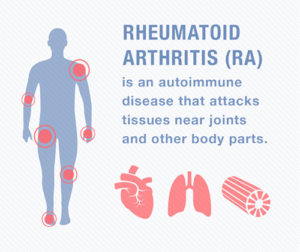Rheumatoid Arthritis Caused by Stress

While rheumatoid arthritis is an autoimmune disease, it can also be triggered by emotional stress. People with this condition often experience flare-ups after undergoing emotional or physical stress. The body's response to physical stress can mimic the reaction to emotional stress. However, it should be noted that the autoimmune response to physical stress is more severe than that of emotional stress.
When a person develops RA, the immune system attacks the parts of the body that are not affected by RA. Specifically, the immune system targets synovium, the membrane surrounding the joints. This inflammation causes pain and damage to cartilage and bone within the joints. Smoking and obesity are two factors that increase the risk of developing rheumatoid arthritis.
While it is unclear exactly how rheumatoid arthritis is caused, researchers believe that certain genes are activated by environmental factors. These factors can include bacteria, viruses, physical stress, and emotional stress. Patients with RA usually experience a rash or fever. The symptoms typically last six weeks and include stiffness in the morning. Some sufferers have the same joints on both sides of their bodies.
Treatment for RA depends on the type of disease and how severe it is. X-rays can help to identify the cause of RA and monitor the symptoms. Some people with RA will respond to corticosteroids while others may not. Lifestyle changes can also reduce the symptoms and the severity of the disease. The American College of Rheumatoid Arthritology recommends the use of disease-modifying antirheumatic drugs (DMARDs), such as methotrexate, which can treat inflammatory conditions and relieve pain.
RA can be treated with medications and other treatments. Surgical treatment involves removing the damaged cartilage from the affected joint. This surgery is typically used in advanced stages of the disease and will allow doctors to determine whether further treatment is necessary. A surgical procedure to remove the affected joint can also be performed. The patient will be placed on an anti-inflammatory medication to improve the condition and decrease the pain.
Most patients with RA will experience swollen joints. This is caused by inflammation. Different parts of the body will experience varying degrees of swelling. This can make it difficult to perform normal daily tasks. It is important to seek medical attention as soon as the symptoms are apparent. The treatment of RA will depend on the specific cause. The symptoms of RA are common but often unpredictable.
In the early stages of the disease, patients may experience joint stiffness and stiffness. These symptoms can occur at any time during the day and last for several days. Symptoms of RA may also include fever. It is important to note that some patients do not have a fever. A patient with RA experiences some stiffness in the morning. In the evening, it is important to avoid physical activity during the day.
Symptoms of rheumatoid arthritis are most often associated with joint stiffness. The pain may also last throughout the night. The patient may experience fever and loss of appetite. Depending on the severity of the disease, the doctor may suggest surgery to remove the affected tissue. Treatment for RA depends on lifestyle changes and is individualized for each person. The site productossaludes.com says that once the disease is diagnosed, lifestyle changes can prevent complications from occurring.
Inflammation of the pericardium can cause chest pain. Inflammation of the pericardium is a symptom of rheumatoid arthritis. Inflammation of the pericardium can lead to heart problems. Inflammation of the pericardium can also lead to a heart attack. In addition, rheumatoid arthritis can reduce the number of white blood cells. This leads to an enlarged spleen and a higher risk of infection.
Early symptoms of rheumatoid arthritis include painful and swollen joints. The small joints of the hands and feet are most often affected. Sometimes patients may also experience corneal ulceration. The symptoms of rheumatoid arthritis are similar to those of other types of inflammatory diseases.